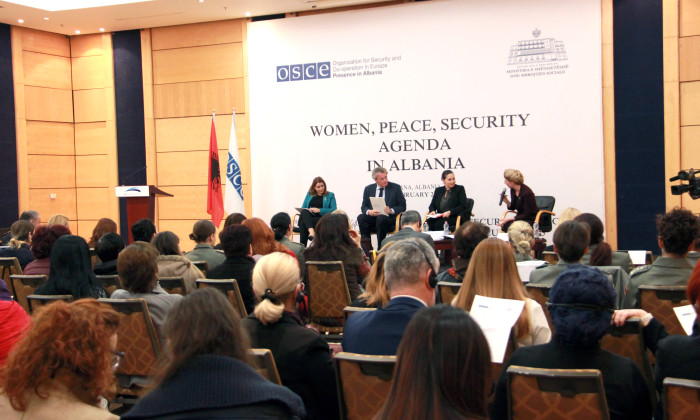Women, Peace and Security (WPS)
Women, Peace and Security (WPS) first made it on to the UN Security Council’s in 2000, with the adoption of UN resolution 1325.Nine follow-up resolutions on the same topic have since been adopted. The WPS agenda represents the linkage between the needs and experiences of women and girls in conflict situations and the responsibility of Member States to incorporate a gender perspective in their peace and security policies (gender mainstreaming). The WPS agenda includes four key demands: first, women should actively participate at all levels of decision-making in peace processes and operations (participation); second, women should be an integral part of all conflict prevention measures (prevention); third, everyone must be protected from sexualized violence in conflict (protection); and fourth, all reconstruction and reintegration measures must take into account the needs of women and men in a gender-sensitive manner. In 2020, Resolution 1325 celebrated its 20th anniversary.
International and regional organizations strive to incorporate a gender perspective in peace operations, both within mission structures and in relation to their programmatic activities. Accordingly, one aim is to increase the proportion of women in peace operations and to eliminate the incidents of sexual exploitation and abuse. Gender aspects are taken into consideration in programs such as >Security Sector Reform, >Disarmament, Demobilization and Reintegration or >Rule of Law.In Kyrgyzstan, for instance, the OSCE presence supported the creation of the “Kyrgyz Association of Women in Security Sector”. The OSCE presences in Kosovo and Serbia have developed a dialogue forum for women from Kosovo and Serbia.
Many peace operations incorporate a gender perspective, both within mission structures and in relation to their programmatic activities, e.g.:
• MINUSCA in the Central African Republic
• MONUSCO in the Democratic Republic of Congo
• UNAMI in Iraq
• UNFICYP in Cyprus
• UNSMIL in Libya
• EUAM Iraq
• EUAM RCA in the Central African Republic
• EUAM Ukraine
• OMiK in Kosovo
• KFOR in Kosovo
• NATO Mission Iraq
 © Joana Karapataqi
© Joana Karapataqi
UN, EU, OSCE and NATO missions all have gender advisers and/or gender focal points who contribute to integrating a gender perspective into the work of the mission as well as into political processes in the host country. Many UN missions, for example in the Democratic Republic of Congo (MONUSCO), Iraq (UNAMI), Libya (UNSMIL), Somalia (UNSOM), South Sudan (UNMISS), the Central African Republic (MINUSCA) and Cyprus (UNFICYP), have gender units/sections/offices that work closely with UN Women, with mission colleagues in political affairs and human rights, as well as with humanitarian actors. In addition, some UN missions also have women protection advisers who focus on prevention and protection from sexual and gender-based violence.
Similarly, most EU missions, e.g., EUAM Iraq, EUAM RCA in the Central African Republic, or EUAM Ukraine, have gender advisers or gender focal points. The OSCE also has full-time gender advisers in some missions (for example OMiK in Kosovo); other presences have gender focal points. Some OSCE presences also have gender working groups that co-ordinate work on gender mainstreaming. The NATO missions KFOR (Kosovo Force) and NATO Mission Iraq also have gender advisers.
The WPS agenda has been significantly bolstered since Sweden became the first country globally to introduce a "feminist foreign policy" in 2014. Even though Sweden, in late 2022, announced that it would revoke its "feminist label", a number of governments have since committed to a feminist foreign policy, e.g. Canada (2017), Mexico (2020), Libya (2021), Chile (2022) and Mongolia (2023). The German government has also pursued a feminist foreign policy since 2021 - with the aim of strengthening the rights, resources, and representation ("3Rs") of women and marginalized groups. In 2023, the Federal Foreign Office launched its guidelines on feminist foreign policy, outlining the meaning of the concept for German foreign policy and the working methods of the Foreign Office.
As of 31.07.2023